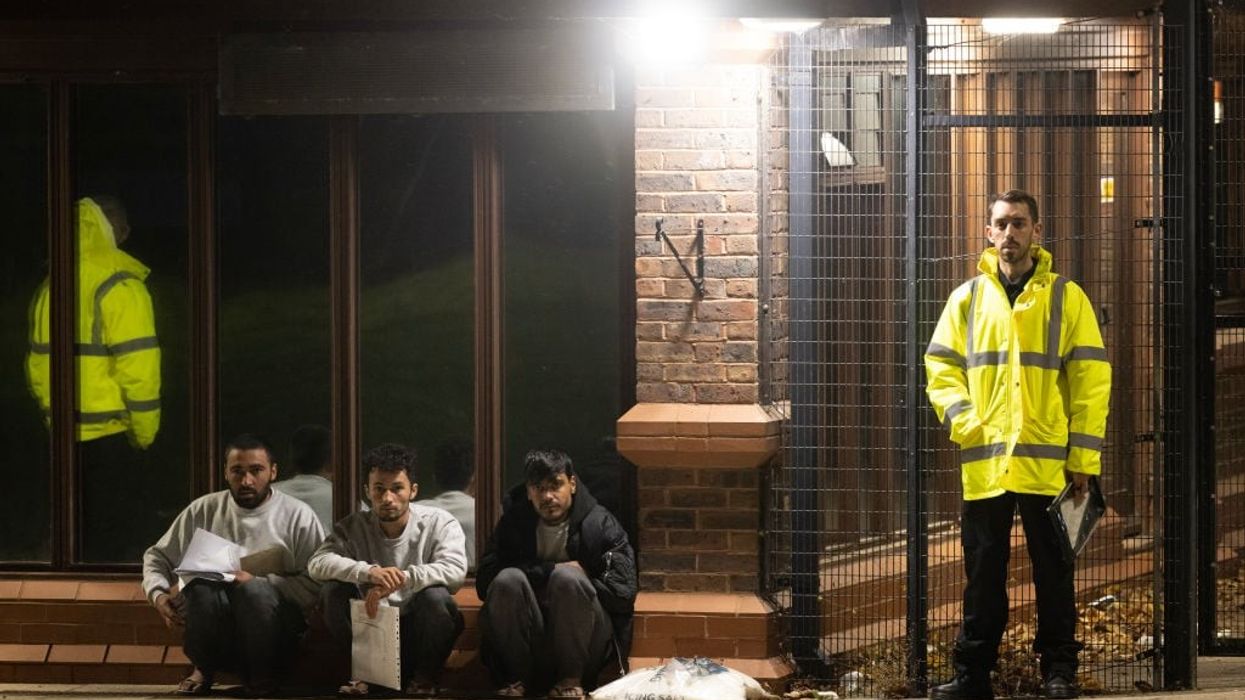As many as 40 Afghan families with 150 children in Kensington, west London,were asked to settle over 200 miles away in Wetherby, Leeds, the Guardian reported.
These refugees have been living in London for the past 18 months after fleeing the Taliban.
The latest Home Office order came as a shock to these Afghan families who include a former Afghan general and former British army translators.
They told the newspaper that they won't obey as their children, already traumatised by war and displacement, will suffer again by being forced to drop out of their schools.
According to the report, some refugees have found jobs in London and are worried about opportunities in West Yorkshire.
They are currently housed in a four-star hotel near the Victoria and Albert Museum. Recently, some received letters instructing them to move to the Mercure hotel in Wetherby.
There are growing concerns that home secretary Suella Braverman has failed to uphold promises made by former prime minister Boris Johnson to support Afghans who worked alongside the UK in Afghanistan.
As many as 9,000 Afghans are still living in temporary accommodation in the UK since August 2021.
According to briefings given to local councils, the government plans to move all Afghan families out of hotels by end of this year.
Hamidullah Khan, a former parliamentary adviser in Kabul who was evacuated to the UK with his wife and three sons aged between four and 14, said the government had broken a series of promises to help them find housing of their own.
“We asked the Home Office: ‘Why do you want to force us out?’ and they say: ‘This hotel is expensive. The Leeds hotel is cheaper.’ Now we have been here, not out of choice, for 18 months. Our children are going to local schools, and in the middle of the school year they ask us to leave.," Khan was quoted as saying by the Guardian.
He urged the government to act as a guarantor so he can afford to rent a place near London instead of paying tens of thousands of pounds in hotel fees.
“Two children who lived in this hotel are in hospital, and their parents are being asked to move on. Some people now have jobs. We cannot just leave these responsibilities and start again,” another refugee said.
The Home Office wants to start the shifting on 7 February, it is learnt. A spokesperson said that the office already informed in September that a move will be necessary.
Meanwhile, some residents in Wetherby already voiced opposition to the local hotel taking in Afghan residents.
Though the government asked Afghans to find their own homes to rent many found it difficult as private landlords do not rent to those on universal credit and most refugees struggled to find a guarantor.
Peymana Assad, a Labour councillor in Harrow who is of Afghan origin, pointed out that Afghans are finding it difficult to move on from hotels as they have low incomes and large families.
“With refugees being kicked out of hotels by the Home Office, councils across the country will see homeless applications from them and many refugees will be back where they started, in a hotel,” she told the Guardian.
A Home Office spokesperson said that the government is committed to moving people into more sustainable accommodation as quickly as possible.
“Occasionally families may be moved from a hotel scheduled for closure to another hotel. In these instances, families are given appropriate notice of a move and are supported by their local authority. We are proud this country has provided homes for more than 7,500 Afghan evacuees, but there is a shortage of local housing accommodation for all," the spokesperson said.





